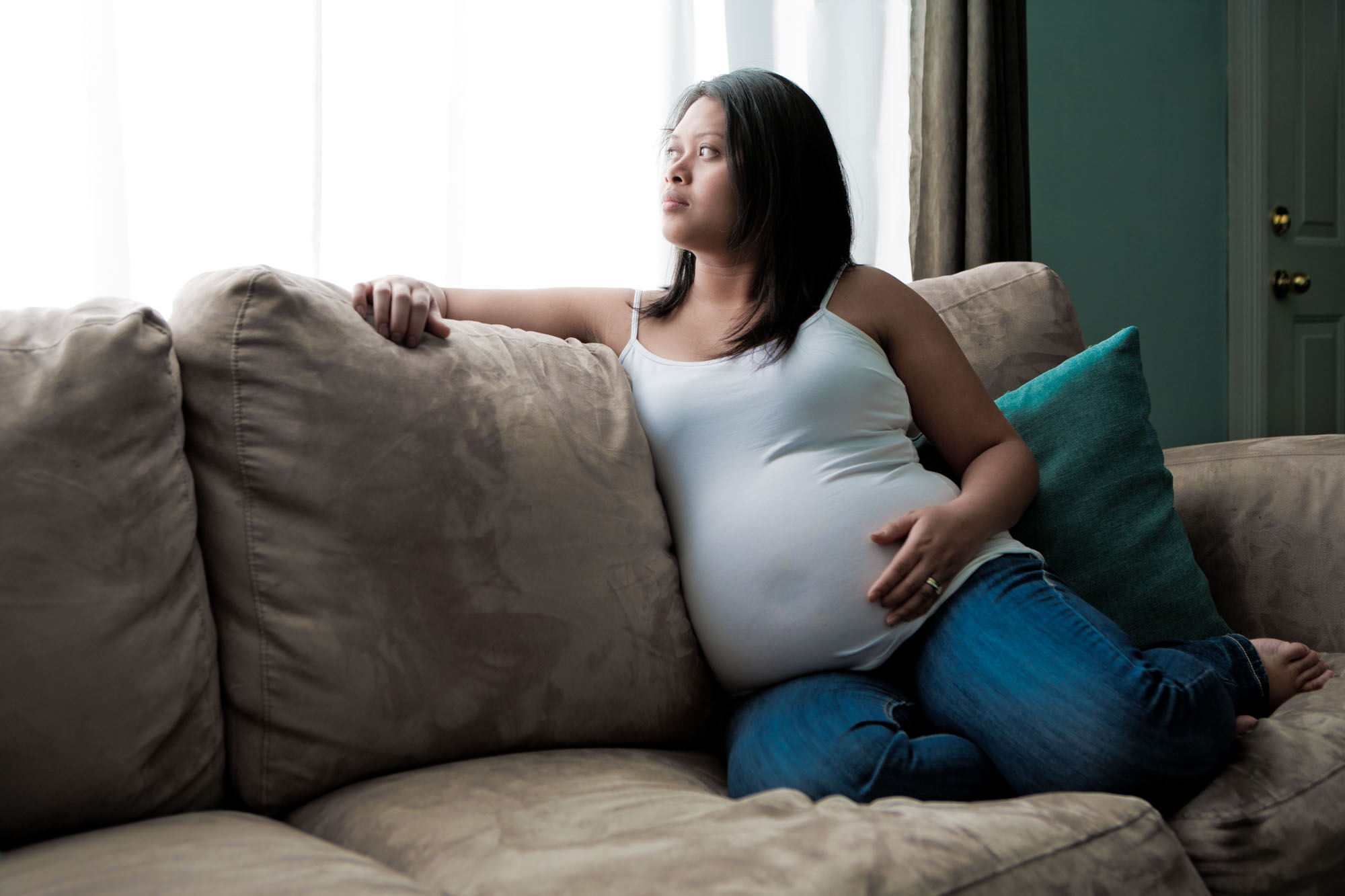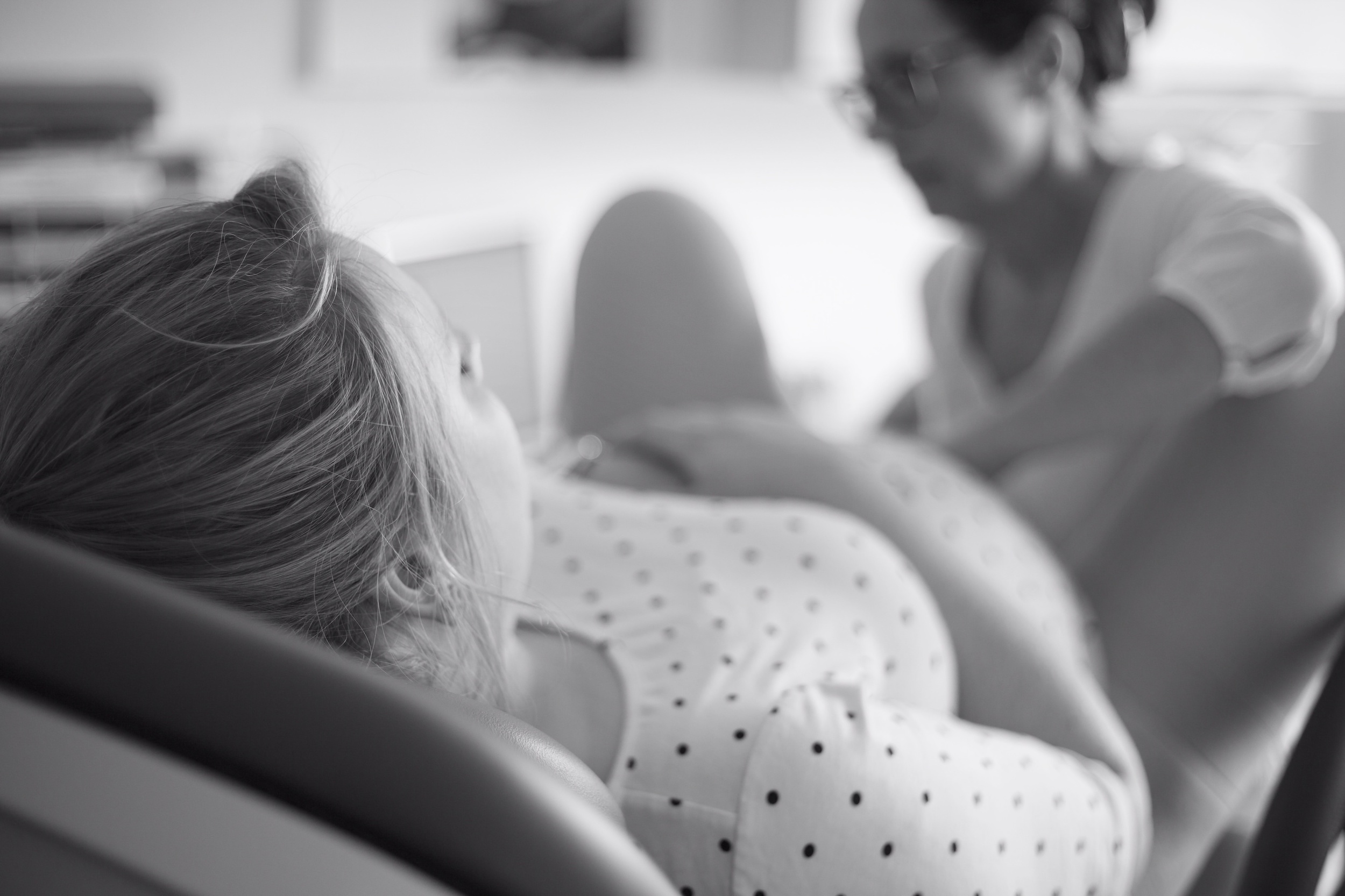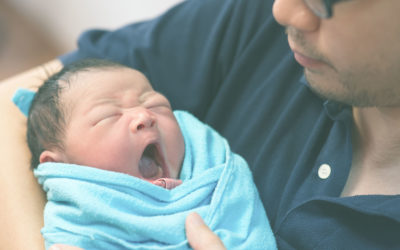The Fear Culture that Follows Birth
Maybe it was your mother, maybe it was your best friend. Maybe it was your Uncle Stan, your aunt’s creepy second husband who never knows when to stop. It could also have been your grandmother. Maybe it was all of them. Somewhere along the road however, you heard horrific stories about birth. And breastfeeding. It seems like everyone has a negative anecdote for you regardless of whether they have had children, witnessed birth, or even have much interest in the subject at all.
Turning
Vaginas ripping straight through to your butthole.
Emergency c-sections.
Epidurals that didn’t work.
Episiotomies without consent.
Nightmare breastfeeding stories.
Vicious hemorrhoids.
Days of constipation.
Sound familiar?
It’s no wonder by the time people reach out to us (or go it alone, and think this is the norm) they are terrified. It is so rare pregnancy and birth are spoken about in glowing terms, and yet pregnant women are indeed expected to “glow.” To radiate joy from their pores, so contagious that when they fail to smile for passers by, a fairy dies.
It is such an interesting contradiction I am continuously shocked people fail to see it. After hearing horror stories about traumatic pregnancies and birth, tales of sleepless delirium etc, pregnant people are supposed to be happy! Glowing! Fucking jovial! While I understand fear and joy can exist simultaneously (I do have kids, after all) my challenge to parents who have been through it before is this:
Shut. Up.
I know it is always more fun to tell the shocking stories. Stories with drama, or stories with a punchline. The dropping jaws and fear in peoples eyes, the reaction! Birth stories are the “big fish” tails of medical incredulity. Even if it was all true for you, have you ever stopped to ponder why you do this? Could it just be an engrained “right of passage” thing? We aren’t telling our grandparents before their hip surgery all of the horrible things that could happen, so why are we doing it to our families as they bring new life into the world?
This isn’t a call for everyone to stop discussing their birth stories which can actually lead to PTSD, or secondary trauma. In fact, it is quite the opposite. This is an effort to start changing the conversation surrounding pregnancy and birth. If families were encouraged to process their experience surrounding birth immediately following the actual event, (hint hint, doulas will do this with you) would the stories they felt like sharing be reflections of their fear during that time? Their focus on pain? Or will they instead be instead stories of triumph over fear, pride over making it through the pain.
Scaring people is fun, or Halloween wouldn’t still be a thing. With Halloween however, people can choose to not participate or go to a scare-free house before 5 PM. When you are growing your family, wouldn’t it be nice if you could “opt out” of everyone’s “well intentioned” stories? As a pregnant person, would it not be refreshing to hear “yes I had a tear, but my doctor/midwife sewed me up so quickly afterwards while I was holding my baby, I didn’t even notice until it was over!” Instead of “I practically ripped in half! There was so much blood!”
My guess is yes, it would be. But we can’t opt out, so let’s rip the fucking bandaid off. Tell your friends you don’t want to hear their horror stories, it doesn’t help you prepare. Ask them instead if they remember any glimmer of positivity, even if that’s just “ya, when it was over.” Everyone knows labor hurts, but it isn’t “normal” (unexpected) pain.
Labor is painful…but it’s an expected pain. You know it is coming, and you have 40 weeks to prepare yourself mentally and physically. Would you run a marathon with absolutely no training, after all you heard about it was how much it fucking sucks? If for some inexplicable reason you DID have to do that, I would imagine it would go something like this:
You sign up for your marathon, yay! It’s in about 10 months, so naturally you know you have lots of time to train and prepare. You have heard so many different things about marathons, you’re nervous, but also so excited! As you start sharing the exciting news, it seems like no-one has anything particularly useful to add.
“Oh I did that. What a disaster! I broke my ankle half way through. Everything turned out FINE though, you know?”
“Oh on my race day it was 234 degrees, and I ran barefoot. You’ll never be able to do that! I have seen you with a stubbed toe.”
As race day approaches you are just a bundle of nerves and anxiety. You watched some youtube videos on training, they were pretty cursory overviews. People have been running FOREVER right? It’s supposed to hurt, but you will run a few miles and see how it goes. It’ll be fine. The excitement has dissipated though, and you are starting to panic. YOU CAN’T DO THIS! THERE HAS TO BE ANOTHER WAY! SOMEONE GET A BIKE. About half way through… you call for the bike. You make it across the finish line. It’s fine. Or it’s not. It’s lots of things, and you don’t really know how to process it. It seems like whenever you reach out to friends and family, all you hear is “that’s just how it is.” Or “suck it up I had it worse.” Wasn’t this supposed to have been a positive, transformative experience? WHAT the fuck happened?! You feel ashamed you didn’t love it, you don’t know if you will do it again, and when people ask you about the race you tell them it made you feel like you were breathing in glitter.
Now let’s imagine your marathon from another perspective. A more…supportive model:
You sign up for your marathon, yay! It’s in about 10 months, so naturally you know you have lots of time to train and prepare. You have heard so many different things about marathons, you’re nervous, but also so excited! As you start sharing the exciting news, it seems like everyone is committed to your success! They tell you what a long road it is, but they make sure you know there is help. “This app is great for your pace.” “This trainer did wonders for my self esteem.” “This technique was phenomenal for my strength training.” “When I got to mile 20 and I felt like I couldn’t do it anymore, this is what got me through.” Gee fuckin’ wilickers, this feels nice. You are still nervous, and worried about the race but you feel confident you’ll finish. On race day you feel jittery, filled with a euphoric adrenaline you almost don’t know how to handle. YOU MADE IT! IT’S HAPPENING! WEE! You rely heavily on the coping strategies your friends and family taught you during all sorts of necessary intervals within the race. You finish, exhausted, so sore, elated, did I mention exhausted? You are proud as a goddamn goat*, and you can’t wait to tell everyone about it.
I think you see where I am going here. When did birth culture become fear culture? Oh I know, pick me, pick me! It happened in the 1920’s when, Dr. Joseph DeLee (an obstetrician) wrote in the first ever edition of American Journal of Obstetrics and Gyneocology on the benefits of sedation during labor and delivery. He did good things, too. But he sure fucked some shit up with that one. While some refer to him as “the father of modern day obstetrics”-an oxy moron if we’ve ever heard one in and of itself-I think it’s pretty safe to refer to him as “the father of modern day interventions.” And thus, the cascade of negativity started. There really isn’t many positive things to say about an experience you aren’t conscious for, is there? Women were taught that labor was an unnecessary and atrocious pain, something to fear. And well, they talked. To each other. To their own daughters. As hospitals began to take over the birthing process, the acceptance of the pain of labor was replaced by the idea that labor was a sickness, and needed to be managed.
There have obviously been strides made in the fear culture surrounding birth. There is more education available for families who have access** to it. When women are given options during labor and delivery, it is directly linked to a more positive outlook of their birth experience. After all, if you have all of your actual options and they’ve been delivered in a concise way that you can understand, there is a lot less to be fearful of. And when you feel safe, you can start the hard work of mentally preparing for all of the rest.
Part of mentally preparing for childbirth, and any huge life event, is often to seek guidance and comfort from those around you who have experienced it already. If the only experiences we hear about are steeped in fear and mystery, we are bound to repeat history.
So maybe I was wrong earlier, when I told ya’ll to shut up. I’m cool with being wrong, because admitting it means you can grow. What I meant to say was speak up. Speak up about what helped you make it through transition. Speak up about the pillow you bought on Etsy at 27 weeks that was a total game changer. Speak up about why you loved your anesthesiologist, or your Hypnobirthing instructor. And speak up about the traumatic events too – but don’t succumb to the American Fear Narrative and only focus on that. After all, Nosy Nancy from Ninth Street doesn’t need to hear “how you ripped straight through your asshole!” when she shares her exciting news with you. In fact no-one does, so let’s move forward.
* I don’t know if goats are proud.
** Don’t even get us started on access. Shouldn’t excellent, current medical data be accessible to everyone?




0 Comments